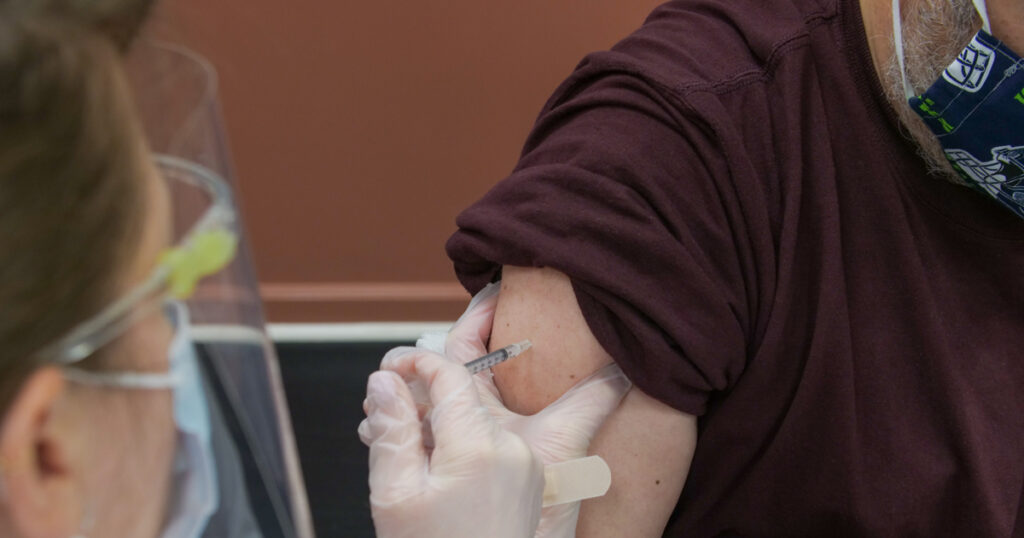Workplace safety is no longer limited to hard hats and steel-toed boots. It extends beyond just keeping your physical body safe from physical injury and harm. While ‘workplace wellness’ is not a new term, it is still an elusive goal for many employers and employees alike. The theory around this kind of wholistic approach encompasses the physical, emotional, and mental safety of employees and is about optimizing well-being through positive behaviours.
No matter what industry you work in, you’ve likely experienced your share of long, tiring shifts. Stressful and exhausting days where you feel overworked are the norm for far too many employees. You shouldn’t find yourself saying: “I was so busy I worked straight through lunch”. These kinds of work habits are generally part of a cycle of overworked employees that, if left unchecked, can lead to serious health risks. Dedicating small portions of your day to simple, yet effective, wellness techniques can have long-lasting improvements on your overall wellbeing.
Take breaks.
A lot of people work through their breaks due to a busy schedule or a desire to prove dedication to the task or organization. But taking a breather, literally, can improve your focus when you come back to what you were working on. Stretch your legs. Go for a walk. Get some fresh air. Take 5 deep breaths. All of these activities can help your body rest and reset in a matter of minutes and they’ll prevent you from burning out before your day is done.
Fuel up.
Combat sluggishness, mood swings, and that foggy feeling by eating healthy snacks and a well-rounded lunch. Be sure to drink plenty of water. You’ll feel great and have the fuel you need to complete your job responsibilities like a well-oiled machine.
Stay informed.
Each workplace has their own policies and procedures intended to provide information around expectations, resources, and obligations for both employers and employees. Knowing your rights and responsibilities is an essential element to your success in the workplace. It can also be a guide when making important decisions.
Information around Covid-19 vaccinations.
*All information provided is accurate at the time of posting, but as COVID-19 is a rapidly changing situation and employers operate independently based on their type of business, some points may not reflect up-to-date research and advice.
Speaking of staying informed, we’ve all been faced with many challenges throughout the pandemic, and this vaccination phase has posed many questions.
At Teamsters, we are committed to helping our members stay informed about their rights and improving their quality of life. Here are some frequently asked questions and about the COVID vaccine:
Is the COVID-19 vaccine safe?
It is important to make your decisions based on science and credible sources. Strict safeguards are in place to ensure the safety of all COVID-19 vaccines. Before being validated by the World Health Organization (WHO) and approved by Health Canada, COVID-19 vaccines must undergo rigorous testing in clinical trials. Read more information on vaccine safety to make the decision that’s right for you.
What if I cannot get the COVID-19 vaccine for good reason?
Workplace vaccination policies should always have exemptions for individuals with health concerns or cultural or religious beliefs that prohibit vaccination. Your employer can, however, ask for proof that you fall under an exemption. For example, you may be required to provide a doctor’s note or some form of sworn statement (such as a statutory declaration).
Under human rights laws, employers have a duty to accommodate employees up to the point of undue hardship. The policy should outline how the employer will accommodate employees who do not or cannot get vaccinated. Not sure if your rights are being violated? Contact us anytime (it’s confidential), we’re here to help.
Can my employer ask for proof of vaccination?
Yes, but your employer only needs enough information to know you are vaccinated. They cannot ask when or where you were vaccinated, or which vaccine you received. Your employer should not be keeping your medical records on file unless explicitly agreed upon by the employee.
There has been discussion around the requirement for ‘vaccine passports’. As of the time of writing, no policies have been put into place. Until the government provides further direction on this matter, keep your records private and contact your union representative if you have any questions.
What should I do if my employer requires me to get vaccinated?
Your union has an obligation to advocate on your behalf and we believe that your choices should be respected. The health and safety of all workers – whether or not they support vaccination – is important. We encourage you to talk to others and consult government and medical science reference sites to make an informed decision.
Can I ask my coworkers if they are vaccinated?
No. Vaccination records are personal health information, and your coworkers have no obligation to share this with you. Your employer is also prohibited from sharing medical records about one employee with other employees.
What can I do if my coworkers refuse to get vaccinated and my employer does not have a vaccination policy?
Employers are not obligated to implement a vaccination policy, and the Government of Alberta has clearly stated that the COVID-19 vaccine is not mandatory. Some people may choose not to get vaccinated for a variety of reasons, and it is important to respect their personal decision.
Useful Resources:
Learn more about the benefits of being a Teamsters 987 Member.
For more information on Alberta’s vaccine program, visit the Government of Alberta’s website.
For more information on COVID-19 vaccines including approved vaccines, types of vaccines, and ongoing safety monitoring, visit the Government of Canada’s website.






Comments are closed.